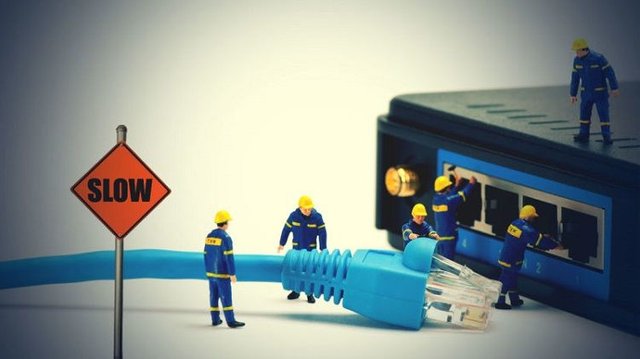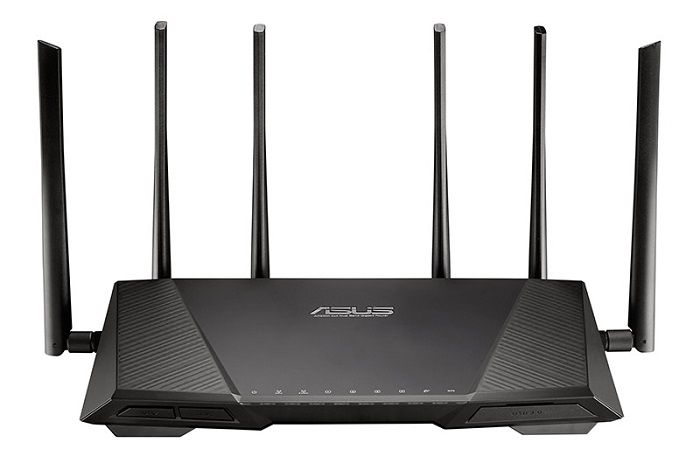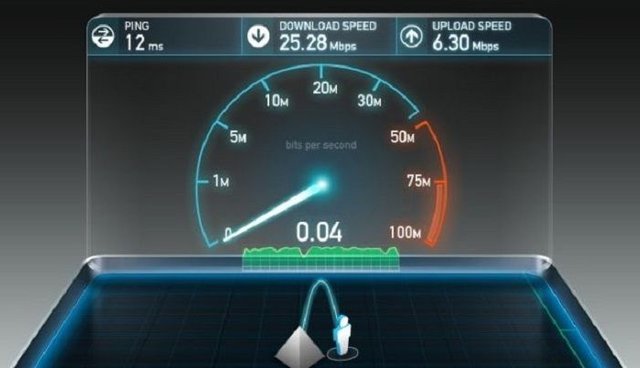Experiencing Slow Internet Speeds? - Here's why!
When talking about network connectivity between two devices or internet connectivity in general, there are three major areas of concern. These areas are:
- The connection between your computer and your router or modem
- The connection between your router or modem and your internet service provider (ISP)
- The connection between your ISP and the internet.
All three of these areas have room for air which can slow down your internet access.
 [1]
[1]The connection between your computer and your router or modem.
If you’re using a wireless connection, there are few places where your connection can slow down, that can be interference from other wireless devices that may not be on the same frequency but may operate on a larger scale. Those devices could be microwaves or sometimes even television that are pretty old and emit a lot of radiation.
Another wireless issue you could have is if your router is not up to industry standards, they’re limited to small speeds around 54mbps and that could really slow down the perceived internet access that you have. What I recommend for this solution is getting a nice dual band 802.11 AC wireless router, this can be purchased for as little between 70-100 bucks and they give you much more flexibility of how much bandwidth you get over a wireless network.
 [2]
[2]If you’re using a wired connection, faults between your computer and your router maybe a little less common. The most common problem I see when communicating between a computer and router or modem over a wired connection is that the port size isn’t big enough. If you have a 100 megabit port on your computer, that means the networking card is limited to 100 megabit per second. With a gigabit port on your router, the highest speed you’re going to see on your computer is 100 gigabits per second.
Likewise, if you have a 100 megabit port on your router and a gigabit port on your computer which is the most likely scenario, then that router is limiting the amount of bandwidth that you get. If you’re paying for 150 megabits per second, your router is only able to pull out a 100 megabit per second on it’s wired port, that means you’re losing 50 megabits per second of bandwidth that you’re paying for. The best solution to this is upgrading your router.
The connection between your router or modem and your internet service provider (ISP).
If you pay for a specific amount of bandwidth like 85 megabits per second with your internet service provider, then your ISP is only going to allow you access the internet at that speed at most. Remember, when you’re paying for an internet plan, you’re paying for a maximum speed. That is not a guaranteed 100% all the time 24/7 uptime speed of 85 megabit per second, that means that you can get up to 85 megabits per second. You’ll probably get around 70 megabits per second on an average day.
 [3]
[3]If your modem or router is damaged, that can also give you difficulties when accessing your internet service provider from your local residence. In that case, it’s best to call up your ISP for router repair. If you have a fiber optics box on the premises, that could also be damaged in which case, you would need to call up your ISP again and get them to come and replace or fix whatever is damaged.
If your network is heavily saturated, for instance, there are tons of people on your wireless network or wired network that are trying to connect on the same line to your internet service provider, maybe some are streaming movies online while others are downloading, that’s a lot of bandwidth being requested by a lot of different users and that bandwidth must be split between those users. That might lower the perceived the internet speed that you’re getting but when you add them all up, you’ll generally get the amount of bandwidth that you paid for.
When there’s storm going on and a lot of cables are down, or power goes out, then of course you’re going to lose an amount of internet connectivity. If the power goes out and your router can’t get powered, then you’re not gonna have any internet access.
The connection between your ISP and the internet.
 [4]
[4]If your internet service provider is having troubles, say power outage or some kind of technical difficulty, its probably on a larger scale and they’ll probably fix it as soon as they can but there’s nothing that you personally can do about it except reporting the outage. Look at this scenario:
On Friday night, you’re trying to access the internet when everyone in your neighborhood are watching movies, downloading or playing video games online, that would be considered a "Peak time".
These Peak times are times when ISP’s cannot guarantee you the maximum speeds you pay for. During peak times, you may find a clause in your ISP’s contract saying that during peak times, you may be limited to a specific amount of bandwidth. If you’re trying to access a site or a computer whose IP address has been blacklisted by your ISP, that can also make you unable to access the internet.
I hope you find this article useful, don’t forget to hit that upvote button below if you enjoyed it.
References: 1 - 2 - 3 - 4
Image sources: 1 - 2 - 3 - 4


GIF made by @foundation
Thanks to @camzy for this amazing toon.


Wonderful
The last one is new
I have the believe that cable connection are very fast
Am I wrong?
That's true, a wired Ethernet connection can theoretically offer up to 10 Gb/s but wireless connection is more convenient.
Great article! I hate slow internet lol! Few more years and we won't have any of these issues! Following you @ememovic
Thank you.
Or using glo network lol, steem on bro
lol